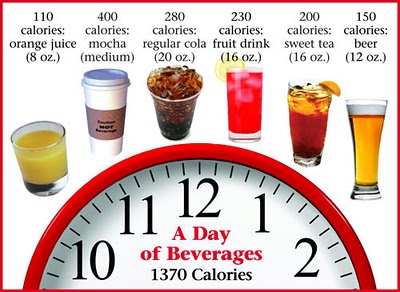Losing weight has become a common theme in America today. Between the time we spend sitting and all processed foods we consume, it’s no wonder why this is the case.
We eat more food and are more sedentary than ever before. The thing is, many people do not even realize how much food they are actually eating. A study from Harvard showed that humans are bad at estimating caloric intake and how the average meal today contains extreme amounts of calories (1).
In this study, the researchers found that:
- Children’s fast food meals contained an average of 733 calories.
- Teenager’s fast food meals contained 756 calories on average. However, they thought they only consumed an average of 497 calories.
- Adult’s consumed an average of 833 calories at fast food restaurants, while they believed to only be taking in an average of 658 calories.
If the average adult eats 833 calories per meal and ate 3-4 meals per day; they would be taking in a whopping 2500-3330 calories per day. Then add in the fact that the average office worker sits 7-8 hours a day (not including driving time or meals before and after work). It’s easy to see why our country has gained so much weight.
Because of this, most want to lose weight fast. Nutrition will always play the largest role in this goal. So today, I want to share with you five easy tips to help you do this. If you begin implementing these tips into your life you will see incredible changes take place.
Are you ready? Let’s get to it!
1. Keep a food journal
Studies have shown those who record what they eat lose twice as much weight as those who do not record it (2). Why is this?
Well, when you record your food you hold yourself accountable. You have to own what you eat. If you eat several fast food meals a week, you have to write that down.
It makes you take a look at the way you truly eat. You can see days when you didn’t do well and days you did do well. You can see how many calories you take in and what types of foods you gravitate towards when you are stressed.
There are a lot of great things about using a food journal. It doesn’t have to be time consuming either. Even if you record what you eat and nothing else, it will still help you. Doing this will take 5 minutes a day.
It can be that easy. When the research shows you can double your weight loss just by recording what you eat, I think 5 minutes per day is worth it.
2. Eat protein with every meal
This is a big one. One study looked at the effects of eating a high protein breakfast (3). They found that this breakfast made the subjects more satisfied and they consumed a lower amount of calories throughout the day. They also found that when they did not eat a high protein breakfast or breakfast at all, the participants tended to eat more high calorie, less nutrient foods throughout the day.
Another study looked at the effects of increasing the ratio of protein on body composition for 14 weeks. The results showed that just by increasing protein intake from 15% to 30%, the participants consumed on average 441 calories less (4). The subjects also lost an average of 10.78 lbs with 8.14 lbs of that coming from fat loss.

Photo Credit: http://www.rivertea.com/blog/protein-supplements-vs-natural-proteins-who-wins-the-battle/
These studies show us two big things. The first is that protein helps you feel fuller for longer. It actually takes longer to digest than fat and carbohydrates; meaning it stays in your system longer so you don’t feel hungry as often.
The second is that higher protein foods help preserve your muscle mass when you are losing weight. This is very important.
The more muscle mass you have, the more efficient you will be at expending calories during the day. This can lead to more weight loss in a given amount of time. Good sources of protein include animal products like meat, fish, and eggs.
3. Eat foods high in fiber
Fiber is a carbohydrate that the body can’t digest. It passes through the digestive tract and helps regulate the sugar in the blood stream.
Studies have shown that increasing fiber intake can help one feel fuller for longer (5). Research has also shown that fiber can help decrease calorie intake by 10% (6). Both of these things can aid in weight loss.
As I mentioned above, fiber helps to control your blood sugar (7). Fibrous foods do not elicit a high blood sugar spike like you see with processed carbohydrates. This will help to increase the feelings of satiety and control insulin, which is important for prevention of diabetes.
Good sources of fiber are vegetables and fruits. Include them in your diet daily (more vegetables than fruits) and you will be good to go.
4. Don’t drink your calories
This is a hard one for people to give up. The simple fact is, if you do not drink your calories, you will consume less overall. Decreased calorie consumption can help with weight loss (8,9).
Most caloric drinks are loaded with sugar and do not satisfy. In fact, just one can of coke contains 140 calories and 39 grams of sugar. If you drink just 1 per day, you would be consuming an extra 980 calories per week. This can easily lead to over consumption of calories and weight gain.
5. Eat less calories
This is one the easiest things that many people do not do. The reason being that most people underestimate the amount of calories they are eating and overestimate the amount of physical activity they are getting (10).
Research has shown again and again that if you take in less calories than you expend you will lose weight (8,9). The great thing is, all these tips I have given you are an excellent way to do just that.
Wrapping Up
There you have it! These tips are so easy and you can begin using them today. The food journal will be the biggest component to the other four steps though.
You need to be able to see what you are consuming on a daily basis. It will help, I guarantee it.
We tend to make weight loss complicated with new diets, but the fact of the matter is, eating real food will do the trick. You just have to be consistent.
That is why many people struggle in the first place. They are not consistent. If you eat well at least 80-90% of time you will see great results.
Another great benefit to incorporating these tips is that it saves you from spending excess money on supplements, diet books, and the countless other weight loss products on the market.
These tips provide you with a great starting point. Use them and you will be blown away at how easy weight loss can be!
If you are looking for a personal trainer in Savannah, contact me to set up a consultation.
And if you found any of this information helpful, or know of someone it could help please share with others!
References
- http://www.usatoday.com/story/news/nation/2013/05/23/fast-food-meals-calories/2356215/
- Kaiser Permanente. (2008, July 8). Keeping A Food Diary Doubles Diet Weight Loss, Study Suggests. ScienceDaily. Retrieved June 13, 2014.
- Leidy, H.J., et al. Beneficial effects of a higher-protein breakfast on the appetitive, hormonal, and neural signals controlling energy intake regulation in overweight/obese, “breakfast-skipping,” late-adolescent girls. Department of Nutrition and Exercise Physiology, School of Medicine, University of Missouri, Columbia, MO. Am J Clin Nutr. 2013 April;97(4):677-88.
- Weigle, D.S., et al. A high-protein diet induces sustained reductions in appetite, ad libitum caloric intake, and body weight despite compensatory changes in diurnal plasma leptin and ghrelin concentrations. Am J Clin Nutr. July 2005. vol. 82 no. 1 41-48.
- Burton-Freeman, B. Dietary fiber and energy regulation. J Nutr. February 1, 2000vol. 130 no. 2 272S-275S.
- Howarth, N.C., et al. Dietary fiber and weight regulation. Nutr Rev. 2001 May;59(5):129-39.
- Jenkins, A.L., et al. Comparable postprandial glucose reductions with viscous fiber blend enriched biscuits in healthy subjects and patients with diabetes mellitus: acute randomized controlled clinical trial. Croat Med J. Dec 2008; 49(6): 772–782.
- Buchholz AC, et al. Is a calorie a calorie? Am J Clin Nutr. 2004;79(5):899S–906S.
- Westerterp KR. Physical activity, food intake, and body weight regulation: insights from doubly labeled water studies. Nutr Rev. 2010;68(3):148–154.
- Lichtman SW, et al. Discrepancy between self-reported and actual caloric intake and exercise in obese subjects. N Engl J Med. 1992;327(27):1893–1898.







